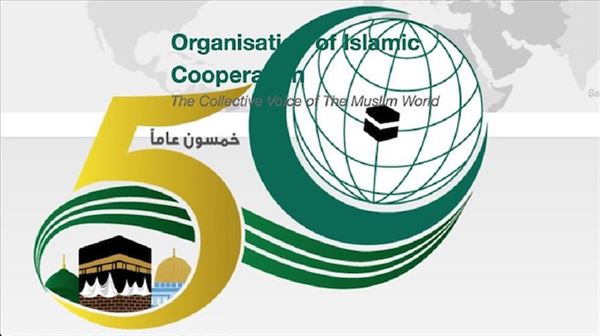Global zakat funds have not been effective to reduce poverty in Muslim-populated countries. The issue was addressed during the Conference of World Zak
Global zakat funds have not been effective to reduce poverty in Muslim-populated countries.
The issue was addressed during the Conference of World Zakat Forum in Bandung, West Java, earlier this week.
“Twenty-four out of the 57 members of the Organization of Islamic Cooperation (OIC) need humanitarian assistance due to conflict and displacement,” said Sikander Khan, director of the UNICEF emergency relief center Thursday.
A study by the World Bank and the Islamic Research and Training Institute (IRTI) of the Islamic Development Bank (IDB) estimated global zakat funds reached $550 billion to $600 billion per year. Meanwhile, the official zakat institutions only managed $10 billion to $15 billion per year.
Khan said that amount was not well-managed and channeled strategically through empowering programs.
Muslims in some countries still live below the poverty line. They are affected by conflicts and had to live in refugee camps.
He said it was a wake-up call for the OIC to plan strategic actions to optimize the great potential of zakat for Muslims who need humanitarian assistance.
Zakat contribution to poverty reduction and welfare improvement of the Muslim population has become a recurring issue that continues to be discussed during the World Zakat Forum (WZF), a forum attended by zakat institutions from 33 countries.
“There have been no global data that show how significant Zakat fund has contributed to help Muslim population,” added Executive Secretary of WZF Irfan Syauqi Beik.
A concerted effort is needed to improve zakat management so it can run optimally. Moreover, not all the world’s Muslim population understand that zakat can play a role in empowering the community in the long run.
There are still Muslims who choose to pay zakat directly, without going through long-term management and empowerment programs.
Secondly, not all Muslim countries have qualified zakat management institutions. Thirdly, not all Muslim-populated countries have laws concerning zakat.
“Only one third of WZF member countries have laws on zakat,” said Irfan.
But in several countries – such as Indonesia and Malaysia – Irfan said zakat distribution is quite effective in improving the living standards of recipients.
“Actually, there are many people do not have the capacity to judge whether the recipient is entitled to be given zakat,” he continued.
To increase the contribution of zakat, WZF has called on members to involve more in empowerment programs through collaboration with humanitarian agencies such as the United Nations Children’s Fund (UNICEF) and the United Nations Development Program (UNDP).
WZF signed a memorandum of understanding with two agencies related to the use of zakat funds in supporting poverty reduction as one of its targets of Sustainable Development Goals (SDGs).
For example, zakat funds have been used to build renewable energy power plants for 803 households in four villages in Jambi, Indonesia.
The project has benefited nearly 5,000 people in 2017 and it able to stimulate economic development and community productivity.
WZF hopes member countries of SDGs can replicate similar programs, not only in the economic field, but also in education, stunting prevention and others.
Digitization of zakat
WZF believes the use of digital technology is one of the ways to optimize zakat management to reach the right target. Through its resolution, WZF asked all member countries to utilize the latest technology in zakat management.
The Zakat Foundation of India is one of the institutions that has utilized technology for the collection and distribution mapping of alms.
“No one comes to our office to pay zakat, all are paid digitally,” said Mahmud.
He said digital technology increased transparency of the reception and distribution of zakat.
“Every afternoon, I receive zakat report via smartphone,” said Mahmud.
“Transparency can boost people’s trust, so that they want to distribute their zakat through us,” he added.
Meanwhile, in Indonesia, Baznas has collaborated with several digital financial platforms for zakat payment.
Baznas targeted that the digital channels will contribute 30% of the total zakat collection in 2020 as the trend of digital zakat distribution continues to increase.
The problem is, however, not all of the world’s Muslim population are technology literates, so the mission of digitizing zakat is not entirely relevant to be implemented.
Azara Abubakari-Haroun, the Acting Administrator of Zakat, Sadaqat, Trust Fund Ghana said 70% of the 5 million Muslim population in Ghana are illiterate and living in poverty.
“That is a problem. if 70% of Muslims are still illiterate how can we digitize the economy?” she said.
Azara realized, digitization of zakat must be done amid the rapid development of the world, adding that Ghana zakat institution is working on a plan for zakat payment through salary direct debit.
“[Eighty] percent of the 1.5 million Muslim population who are eligible to pay zakat say they are interested in this method,” she said.
Regarding this situation, WZF said it would facilitate education and increase the capacity of resources in countries that need assistance to develop the digitization of zakat.
“Africa is one of our concerns. We will strengthen education and increase the capacity of resources in countries that need help, this is the essence of WZF,” said Beik.
